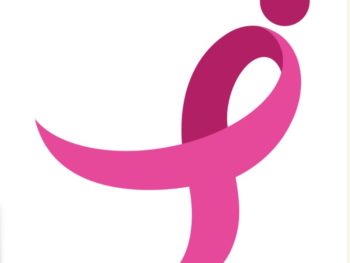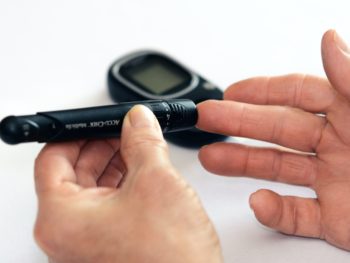This article is a reprint from Providence.org. See their articles at: https://blog.providence.org
Chances are you already know the importance of monitoring your heart health. That’s especially true if you’ve been diagnosed with heart disease or high blood pressure or you’ve been told you’re at risk for developing a cardiac condition. However, the coronavirus (COVID-19) has left many people wondering what’s the best and safest way to get care.
“People with heart disease, including those with high blood pressure, are at a higher risk of complications once they have contracted COVID-19,” states Dr. James Beckerman, cardiologist at Providence. “For that reason, many people have been anxious to leave home – even for the doctor’s office. In reality, managing heart conditions and maintaining communication with your doctor is more important than ever in a pandemic so that you can stay healthy and safe and further reduce your risk.”
Delaying care because of fears of COVID-19 can lead to long-term health consequences. If you notice new or worsening symptoms or have concerns about your condition, talk to your doctor right away.
Delaying care because of fears of COVID-19 can lead to long-term health consequences. If you notice new or worsening symptoms or have concerns about your condition, talk to your doctor right away. It’s safe to get care now, especially at Providence where we have implemented seven safety steps.
Why caring for your heart matters during a pandemic
Skipping appointments or not being as diligent with your cardiac care plan in the short-term can lead to long-term health issues, including heart attack, stroke and heart damage. It can also put you at higher risk of developing complications from COVID-19 and in some stark cases – dying from the virus.
The American College of Cardiology (ACC) found that the death rate from COVID-19 for people with cardiovascular disease is approximately 10.5%, compared to the Centers for Disease Control and Prevention’s estimated 0.4% risk of death for the general population. This holds true to what researchers and physicians have seen in China and Italy, as well.
- In China, 25 to 50% of COVID-19 patients admitted to the hospital had high blood pressure or another condition like cancer, diabetes or lung disease.
- Italy experienced a similar pattern, but at a much higher rate. There, more than 76% of the people who died from the virus had high blood pressure.
- In the U.S., the CDC is issuing similar reports — among people hospitalized in March with COVID-19, almost 90% had an underlying health condition. Nearly one-half of those individuals had high blood pressure, compared to just 35% who had chronic lung disease.
One reason people with heart disease may be at higher risk of COVID-19 is because of a weaker immune system which makes it harder to fight off infections.
One reason people with heart disease may be at higher risk of COVID-19 is because of a weaker immune system which makes it harder to fight off infections. Another worry for doctors is that COVID-19 can damage the cardiovascular system – a serious issue for people already managing high blood pressure, heart disease and heart failure. Some individuals who get COVID-19 develop heart conditions after infection, too.
The good news is there are plenty of things you can do to stay healthy and safe during the global pandemic. And, that may mean seeing your doctor in the office or virtually.
Tips for managing heart conditions
A healthy diet, regular exercise and managing stress are just a few ways to manage heart disease and high blood pressure. But, stay-at-home orders and uncertainty during COVID-19 have made that a little more challenging than usual.
The stress of COVID and not being able to get out and stay active can make it harder to manage your condition, but it doesn’t make it impossible.
“The stress of COVID and not being able to get out and stay active can make it harder to manage your condition, but it doesn’t make it impossible,” Phillip Beasley, practice manager, Cardiology Associates at Covenant Medical Group, reminds readers.
The American Heart Association offers some advice to help you at home, including:
- Follow your doctor’s advice including taking prescription medicine as directed.
- Limit alcohol and caffeine.
- Avoid over-the-counter medicines that could interfere with your blood pressure, including decongestants or ibuprofen.
- Talk to your doctor about prescription medicines that can raise blood pressure, like oral birth control or immunosuppressants.
- Monitor your blood pressure with an at-home blood pressure cuff.
- Get creative to stay active. Go for a walk or try exercises like high-intensity interval training (HIIT). Just be sure not to overdo it.
- Make healthy eating a priority at home by cooking with clean ingredients.
And, of course, make sure you are taking steps to reduce your risk of getting COVID-19, including washing your hands, wearing a mask and following social distancing (physical distancing) guidelines.
Tips for preventing heart conditions
Taking good care of your heart is good advice for everyone – whether you’ve been diagnosed with a heart condition, are at risk or are currently feel fit as a fiddle.
Manage stress and anxiety
Stress and anxiety are at all-time highs right now and can manifest in many different ways – from grief, lack of energy, loss of interest in favorite activities or being unmotivated to eat healthy and get active.
That can be troubling as stress and anxiety impact your blood pressure in the short and long term. Eating an unhealthy diet or skipping workouts can ultimately lead to a higher risk of heart disease or complications.
Make your mental health a priority and gain physical benefits:
- Exercise 20-30 minutes, 5 days a week.
- Eat healthy.
- Limit alcohol and caffeine.
- Connect with friends and family members virtually.
- Talk to a mental health professional.
- Try a meditation app to refocus.
- Sweat out stress by cleaning your house.
Know your risk of heart disease
It can be easy to brush health questions or concerns aside during a pandemic. But, if you have a family history of heart conditions or other health issues, it’s important now more than ever to stay on track with care from your doctor
“High blood pressure doesn’t always have recognizable symptoms,” explains Dr. Kyler Barkley, cardiologist at Cardiology Associates, Covenant Medical Group. “Regular well visits and screenings can identify risk factors and give you a baseline to create a prevention plan.”
Know when, where to get help
Most importantly, make sure you know what do to if your symptoms worsen or you experience a life-threatening emergency, like a heart attack.
Heart attacks and stroke happen, even during a global pandemic. Unfortunately, people are scared to go to the ER or are concerned about burdening their local hospital. But, don’t let those fears stop you from coming in.
“Our emergency departments have not been seeing the typical number of patients with heart attack symptoms or other cardiac events and it’s not because these medical emergencies aren’t occurring. Heart attacks and stroke happen, even during a global pandemic. Unfortunately, people are scared to go to the ER or are concerned about burdening their local hospital. But, don’t let those fears stop you from coming in – we are here to help you safely get the care you need,” says Dr. Jason Strefling, cardiologist at Cardiology Associates, Covenant Medical Group.
Call 911 immediately if you’re experiencing symptoms of a heart attack, including:
- A rise in blood pressure – if you have a cuff, monitor for 180/120 or above
- Chest or back pain
- Numbness or weakness
- Loss of vision
- Difficulty breathing or speaking
An emergency medical technician can start administering lifesaving care in your home and get you to the nearest hospital for additional testing and treatment. It’s always better to be safe than sorry.










 Coronavirus Face Masks & Protection FAQs
Coronavirus Face Masks & Protection FAQs
Leave a Reply